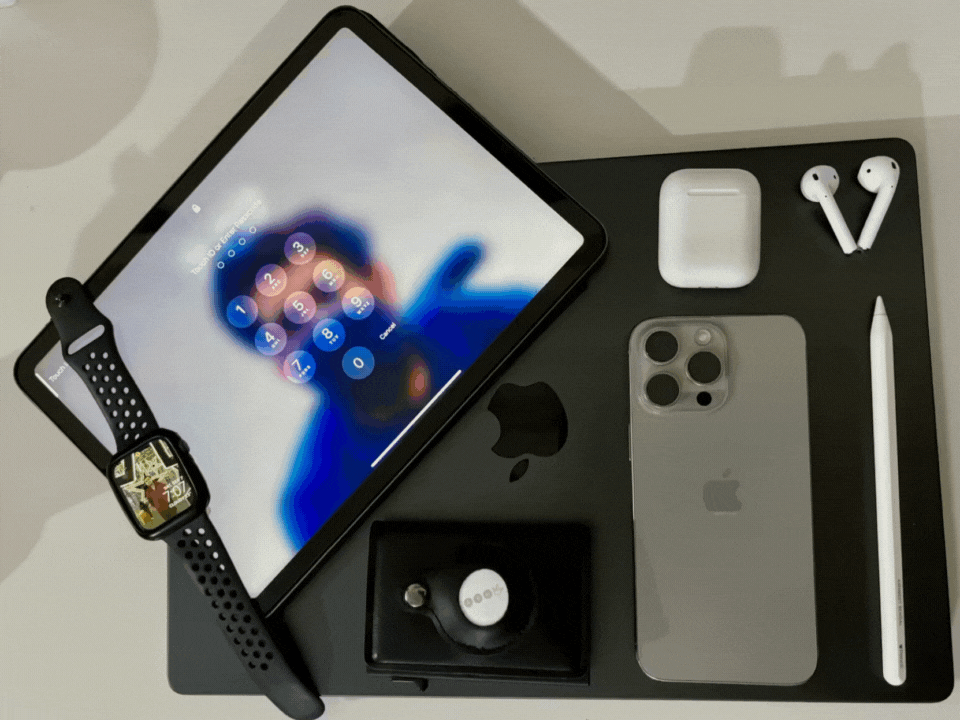
Imagine this: No mobile phone, no laptop, no smartwatch, no tablet, no AirPods—nothing. Just me, out in the world as it is.
I started the day by writing a joke, and for the first time in a long time, I simply laughed at it without feeling the need to share it with anyone.
Getting ready, I noticed something strange—I didn’t take a single picture. No “Outfit of the Day” post, no emojis, no hashtags. Just me, dressed for the day, with no digital proof.
I decided to take my bicycle out for a ride. Normally, I’d track every mile and calorie burned on Strava.
But today? Nothing. Just the sound of the tires on the pavement, the wind in my face, and the freedom of the ride. I also took a moment to really soak in the world around me. The colors of the sky, the shapes of the clouds, the rustling of leaves—it all seemed so much more vivid without a screen between me and reality.
Later, I felt the urge to write, so I grabbed a pen and paper. I jotted down my thoughts, knowing they wouldn’t end up on X (formerly Twitter). The ink on the page felt like enough.
When lunchtime rolled around, I decided to cook. Usually, I’d pull up a recipe on my phone, but today I relied on memory and intuition. The result? A meal that tasted like creativity and spontaneity. With no distractions from scrolling or watching videos, I sat down for the meal and really savored every bite. I noticed flavors and textures I often overlook when I’m multitasking with a device in hand.
In the afternoon, I decided to drop by a friend's house. I did something I hadn’t done in ages—I rang the doorbell. No texts, no calls, just the simple sound of a bell echoing down the hallway.
When evening came, I went for a walk—no AirPods, no podcasts, no music. Just the sounds of the neighborhood, the rustling leaves, and my thoughts for company. My pockets felt strangely light, almost empty, without the usual bulk of gadgets. It was interesting to live a day without constantly checking the time on my smartwatch. I gauged time by the sun's position in the sky, how my body felt, and the natural rhythm of the day.
As I got ready for bed, I didn’t scroll through my phone or watch a show to unwind. Instead, I took a few minutes to reflect on the day—what I experienced, what I learned, and how I felt without my gadgets. The silence and solitude brought a sense of peace I hadn’t felt in a long time.
Now, the real question is: Can I survive like this? Was it tough? Absolutely. But it also made me wonder if I should start having gadget-free Sundays, like some people have weekly fasts. A day to disconnect, to reconnect with the world in a different way.
Would you try it?
FAQ's
1. What is the main idea behind a "gadget-free" day?
The main idea behind a gadget-free day is to disconnect from the digital world and reconnect with the physical world and oneself. It's about experiencing life without the constant distractions and dependence on technology.
2. What are some of the benefits of going gadget-free?
Going gadget-free allows you to:
Experience heightened senses: Without the screen as a barrier, you become more aware of your surroundings, noticing colours, sounds, and textures more vividly. Enjoy genuine human interaction: Face-to-face conversations become more meaningful without the urge to check your phone or share everything online. Find peace and solitude: The absence of notifications and digital demands creates space for reflection, introspection, and a deeper connection with your thoughts and emotions. Rediscover simple pleasures: Activities like reading, cooking, or taking a walk become more enjoyable when experienced without digital distractions.
3. What are some of the challenges of going gadget-free?
The biggest challenge is overcoming the urge to check your devices and stay connected. You might feel:
FOMO (Fear of Missing Out): A sense of anxiety or unease about missing out on online updates or social events. Boredom: The absence of constant stimulation can initially feel uncomfortable. Inconvenience: You may find it difficult to navigate, communicate, or access information without your usual devices.
4. How can I prepare for a gadget-free day?
Choose a day with minimal commitments: Avoid days with important meetings or deadlines. Inform people you won't be reachable: Let family and friends know you'll be offline. Plan alternative activities: Have books, games, or hobbies ready to occupy your time. Prepare for potential inconveniences: Print out maps, directions, or any essential information you might need.
5. What are some alternative activities to do on a gadget-free day?
Connect with nature: Go for a walk, hike, bike ride, or simply sit in a park and enjoy the fresh air. Engage in creative pursuits: Draw, paint, write, play an instrument, or work on a craft project. Read a book: Immerse yourself in a good story without the distraction of notifications. Spend time with loved ones: Have a meaningful conversation, play a game, or cook a meal together.
6. Is it necessary to go completely gadget-free?
Not necessarily. You can start with shorter periods of disconnection, like a few hours each evening or a designated "tech-free" zone in your home.
7. How often should I try a gadget-free day?
Experiment with different frequencies to find what works best for you. Some people benefit from weekly digital detox days, while others prefer shorter, more frequent breaks.
8. What are some long-term benefits of regular digital detox?
Regular digital detox can help you:
Improve your focus and concentration: By reducing digital distractions, you train your mind to stay present and engaged. Reduce stress and anxiety: Disconnecting from the constant stream of information and demands can help you feel calmer and more relaxed. Improve sleep quality: Avoiding screen time before bed promotes better sleep hygiene. Develop stronger relationships: Face-to-face interactions become more meaningful and fulfilling.

